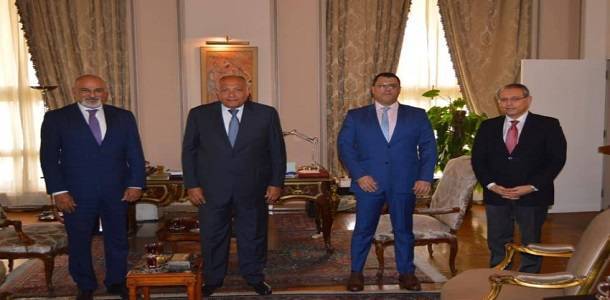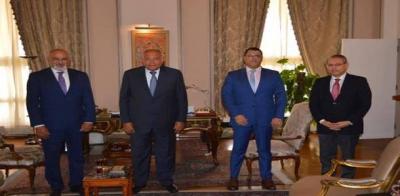The coordinator of the Cairo Platform for the Syrian opposition, Firas Khalidi, denied that their platform submitted any document proposing the establishment of a joint military council between opposition officers and officers from the Syrian army to govern Syria.
Khalidi emphasized in a statement to Sputnik that there was absolutely no submission of a joint document with the Moscow Platform to Russia requesting the formation of a military council. He clarified that there was no joint visit between the Cairo and Moscow Platforms to Russia, insisting that there is no shared paper outside the framework of the Syrian Negotiation Commission, which includes all opposition components. Khalidi stated that the Cairo Platform did not present any document that falls outside the opposition's agreements and outside Resolution 2254. He asserted that they revolted for the establishment of pluralistic democratic governance that preserves citizenship, not to establish a military council, noting that they had left the existing military council and attempted to exert pressure for reform.
Reports had suggested that the Cairo and Moscow Platforms submitted a document to Russia to implement Resolution 2254, which included a proposal to form a military council to govern during a transitional period to be agreed upon. Regarding information about a Russian initiative for meetings that gather the Cairo and Moscow Platforms with leaders of the ruling Baath Party, Khalidi confirmed that any talk about seeking meetings with the Baath Party is inaccurate and out of the question, stating that their meetings are public and the Geneva table is active. He denied that the Russians were involved in any such arrangements, expressing that the Russians do not need a secret offer as they have Sochi and Geneva.
On the outcomes of "Astana," Khalidi stated that it would positively reflect on the work of the constitutional committee, hoping the meeting would remove the obstacles currently present and that the regime would seek to engage seriously in the political process and constitutional process, which are part of Resolution 2254 and with Russian consensus.
Jamal Suleiman mentioned that he proposed the idea of a "military council" in a personal capacity, denying what was reported by the newspaper "Asharq Al-Awsat" about the existence of a written document in that regard. Suleiman wrote on his personal page a clarification regarding his meeting with Russian Foreign Minister Sergey Lavrov and what was discussed, especially what "Asharq Al-Awsat" claimed that the Moscow and Cairo Platforms had proposed to the Russian side to form a "military council to rule Syria during the transitional phase."
He stated that he suggested the idea in a personal capacity, as he was not representing the Cairo Conference, which had suspended his involvement, nor the Negotiation Commission. He indicated that he proposed the idea as an alternative to the transitional governing body mentioned in the Geneva document, noting that he had previously raised it with Russian Deputy Foreign Minister Mikhail Bogdanov "more than four years ago." Suleiman stressed that he did not present this proposal "in writing to the Russian side as mentioned in Asharq Al-Awsat," considering that it "would not be diplomatically appropriate unless the other side showed serious interest."
Suleiman noted that this approach has faced significant backlash from some opposition groups that align with the regime in rejecting it, as well as from social media users, stating, "However, I claim that it will be accepted by the majority of the Syrian people who are bearing the heavy costs of the ongoing collapse."
For his part, the head of the Moscow Platform for the Syrian opposition, Qadri Jamil, denied the report from Asharq Al-Awsat that the Moscow and Cairo Platforms presented a written document to the Russian side regarding the establishment of a military council. He tweeted that the news "bears no relation to reality, and we are surprised by its timing and form and condemn its content, which aims to confuse the political process that has reached maturity and aims to disrupt it." Asharq Al-Awsat had reported that "Moscow received proposals from Syrian opposition figures from the Moscow and Cairo Platforms that included suggesting the formation of a military council during the transitional phase, the duration of which would be agreed upon."




